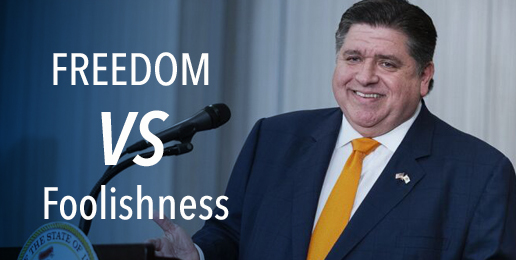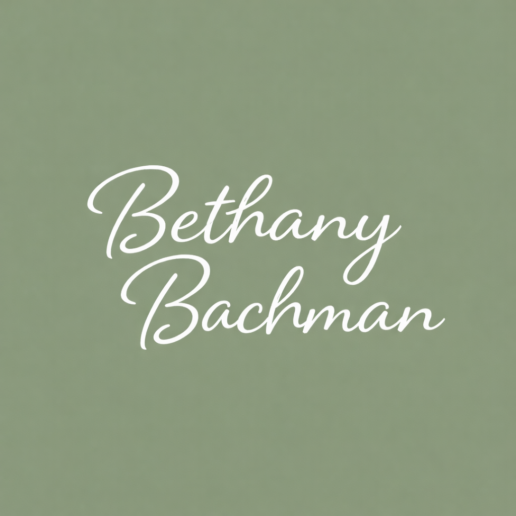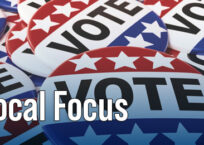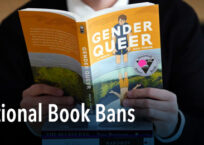
As of January 1, a new Illinois state law is in effect that removes grant funding from public libraries that ban books “because of partisan or doctrinal disapproval.”
House Bill 2789 was signed by Governor J.B. Pritzker last summer and is just the latest in a string of policies advanced by this administration and motivated by its apparent obsession with indoctrinating kids into sexual orientation and gender identity ideology.
Alexi Giannoulias, the new Illinois Secretary of State and also the State Librarian, spearheaded these efforts, which should come as no surprise after his wet t-shirt-clad walk (photos of which he proudly posted on his social media) in the Chicago Pride Parade last year (with his young kids in tow!).
As we’ve previously reported, the new state law requires that public libraries “adopt the American Library Association’s Library Bill of Rights,” which states in part that “[m]aterials should not be excluded because of the origin, background, or views of those contributing to their creation.”
According to the text of the law, libraries can alternatively “develop a written statement prohibiting the practice of banning books or other materials.”
The ALA’s “Interpretations of the Library Bill of Rights” webpage gets even more specific where minors are concerned, stating that the ALA “opposes all attempts to restrict access to library services, materials, and facilities based on the age of library users.”
In a dubious application of the First Amendment, it goes on to say libraries essentially have no right or responsibility to guard certain audiences against materials they are not equipped to view or read.
With the incoherence and vagueness that is typical of the Left, the ALA and drafters of HB2789 have made it nearly impossible for librarians and library systems to know what their responsibility actually is. In some places, it appears the ALA has the final say, but in others, it seems to defer to local librarians as the “authorities” on how to practically apply the law.
Gov. Pritzker offers no further clarity, saying,
“…more information is better. Obviously we all believe in age-appropriate materials, but the reality is our libraries have been able to manage this for years and years and years.”
So, which is it?
Do we deem certain books as age-appropriate for adults only, or do we let anyone, minor or not, check them out? As far as libraries having managed this “for years and years” goes,
a) you can bet many local libraries have kept certain books off their shelves based on a knowledge of and responsibility to their communities, and
b) there is no true historical precedent for the obscene to downright pornographic “literature” now being marketed directly to adolescents in our public schools and libraries.
The Pennsylvania city where I live is the proverbial political “blueberry in the tomato soup” when viewed in comparison to our county, and the materials I see proudly displayed in our city library in no way reflect the selection in the rural public libraries located mere miles from my home. In my experience, librarians often work in the same library for years to decades, forging relationships with families and getting to know the communities in which they work.
This isn’t to say we should implicitly trust them, but it seems to me that these professionals could have some insight into what books are appropriate to promote and send home with their young, impressionable patrons.
Ultimately, as Christian parents, this is yet another example of the crucial responsibility we have to guide and guard our kids through a world that is increasingly hostile to innocence.
The days when we could just send our kids to the library without any oversight are long gone, and now we see in Illinois a concerted effort to remove all restraint, with clear efforts to target kids with materials from which they ought to be protected.
One of the best ways we as parents can respond to this state-sanctioned depravity is to cultivate home libraries that enliven our kids’ imaginations and help form their characters after God’s good design.
Our leaders may hold the power to determine what’s available at the public library, but our homes and our kids are ours to steward. Here are a few resources you can use to buy (or check out, depending on the library) literature that is good, true, and beautiful:
- Gladys Hunt’s Honey for a Child’s Heart
- Sarah Mackenzie’s The Read-Aloud Family
- Right Books 4 Kids Substack (@rightbooks4kids on Instagram)























